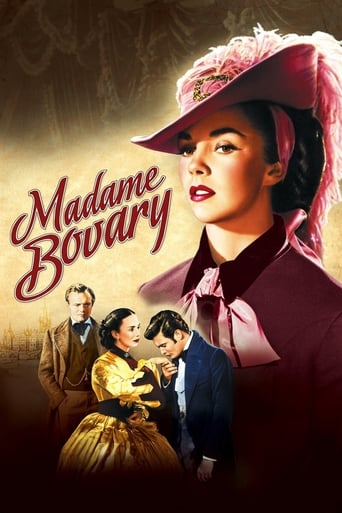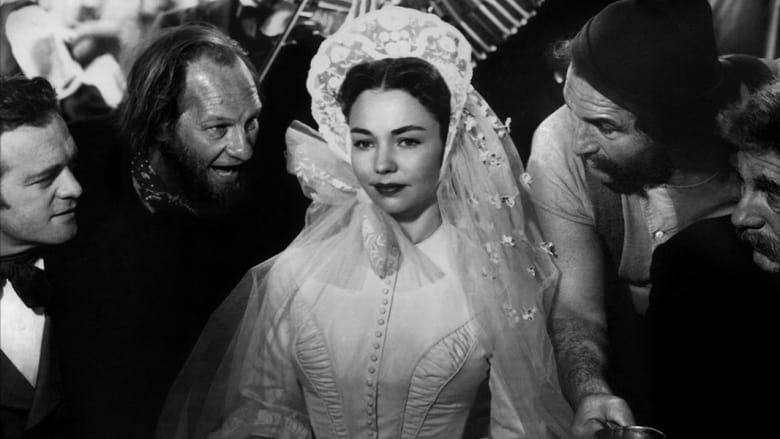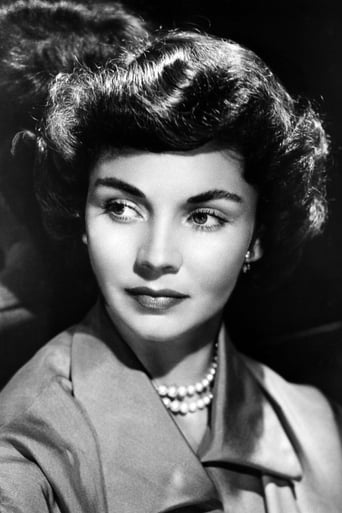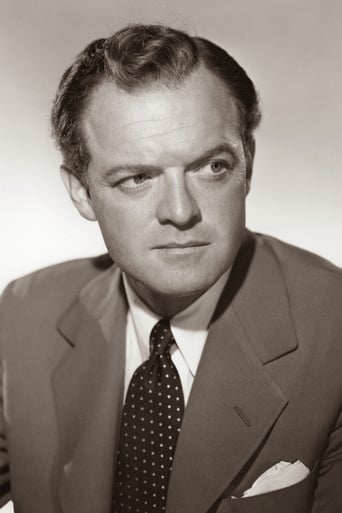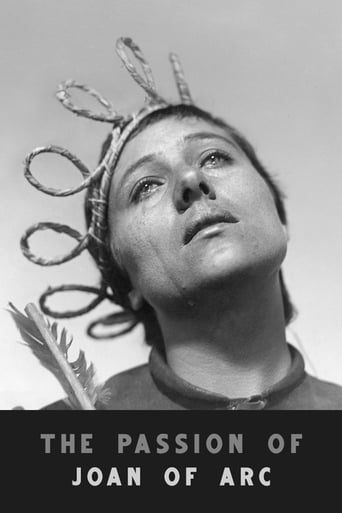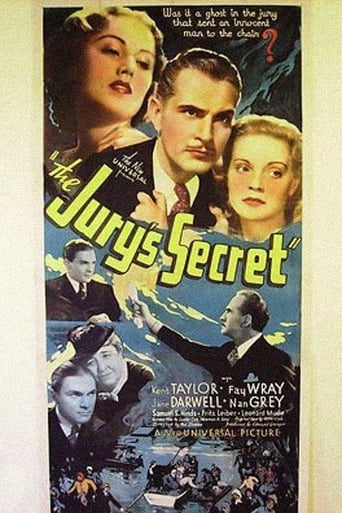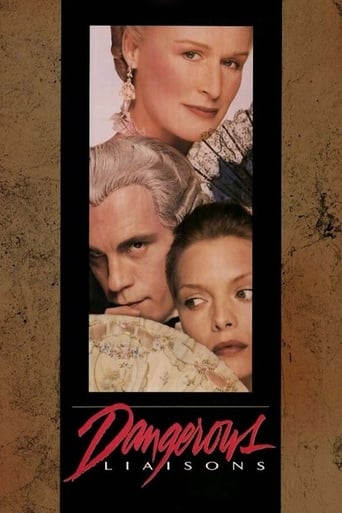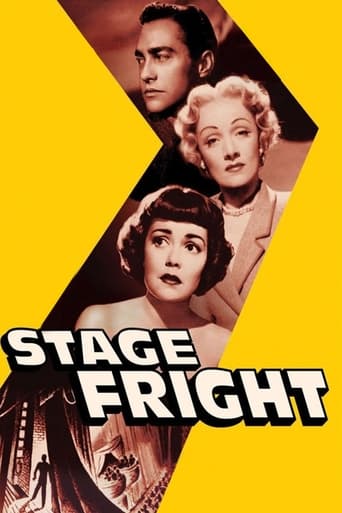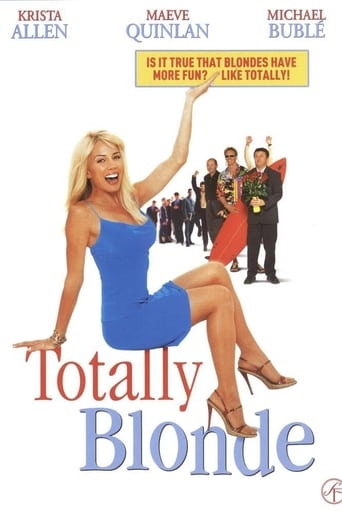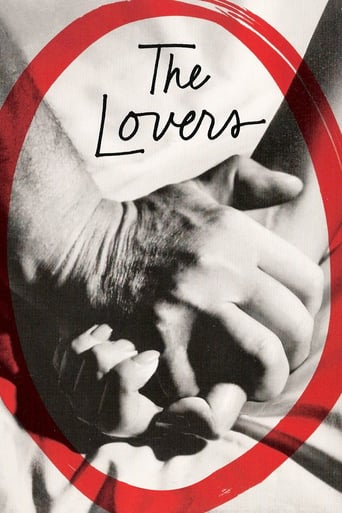Madame Bovary (1949)
After marrying small-town doctor Charles Bovary, Emma becomes tired of her limited social status and begins to have affairs, first with the young Leon Dupuis and later with the wealthy Rodolphe Boulanger. Eventually, however, her self-involved behavior catches up with her.
Watch Trailer
Cast
Similar titles

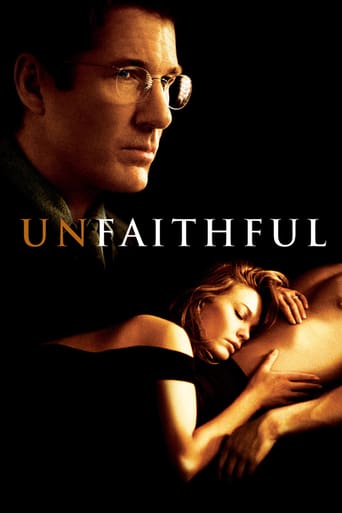
Reviews
Lack of good storyline.
If the ambition is to provide two hours of instantly forgettable, popcorn-munching escapism, it succeeds.
A movie that not only functions as a solid scarefest but a razor-sharp satire.
The film never slows down or bores, plunging from one harrowing sequence to the next.
Emma (played by the beautiful Jennifer Jones) marries Charles Bovary, a doctor, thinking that he will propel her into society. It turns out he is a bore and isn't the dashing man she had hoped for. She does what she can to make him into something she wants, but it's not in him. He isn't even a very good doctor. Soon Emma is having affairs with various men. She goes about, flirting with these rich men, who accept her advances because she is so beautiful. She is also a sexual creature, so she hooks up with those whose intentions aren't the most honorable. The acting is very good and Jones lights up the screen, scandalous as she is, she is a dominating presence on the screen. It doesn't do justice to Flaubert, but it's still excellent.
It is an undeniable fact that French writer Gustave Flaubert's classic "Madame Bovary" is very much a French work of art.This is the reason why acclaimed French directors Jean Renoir and Claude Chabrol have filmed their own versions of this classic tale which not only focuses on adultery but also gives a very vivid and accurate description of peasant life during eighteenth century France.However, American director Vincente Minelli's version is very much different from these Gallic versions as it is quite down to earth with an elusive American touch to it.This is something which makes it very much universal in its appeal and reach.It is really pure joy to see acclaimed American actors Ms. Jennifer Jones and Mr.Van Heflin playing their main roles as Emma Bovary and Charles Bovary.However,James Mason can be touted as this film's absolute real star for his marvelous performance as French writer Gustave Flaubert.It is he who carries the film on his shoulders by making viewers empathize with Emma Bovary's hapless plight.He is one of the primary keys to suggest that his work "Madame Bovary" is a work of our modern times to know how one should view male/female relationships especially relationships which are the cornerstone of all married people's relationships.
This was something of a personal film for director Vincente Minnelli, one of my favorite directors from the 40s/50s Hollywood scene. But I can't say it's a personal favorite of mine, basically because it was too much undermined by Hollywood sensibilities. Still, it is an interesting link in the chain of Minnelli's films and reveals a lot about him as an artist. It bears interesting comparison with some of his other films, which provides my main interest in the film as opposed to what it is in and of itself.This version of "Bovary" starts with a rather intrusive framing device wherein the author Flaubert (played by Englishman James Mason) takes the stand in defense of his novel's decency. What he ultimately provides by way of defense is rather insulting to one's intelligence -- simply the idea that art depicts "realism" of some kind and that therefore the morality of the art itself cannot be drawn into question. All of this just might have some kind of impact, if it weren't for the fact that the film itself avoids a lot of the nastier aspects of Flaubert's work and replaces them with a relatively standard misogynistic "fallen woman" tale, whitewashing the character of Charles Bovary (Van Heflin) and cleaning up the ending. So while we have James Mason eloquently defending artistic freedom, we have at the same time a compromised film that hypocritically censors Flaubert's work in order to make it more palatable to Christian sensibilities.However, in someone other than Minnnelli's hands this script could have turned into full-on misogyny. Instead he and Jennifer Jones (in the title role) created a reasonably nuanced portrait of the woman. And what really puts it over is Minnelli's unparalleled sense of how to use the environments to enhance the characterization, from Emma's little farm room with tacked-up depictions of noble knights and ladies, to the bric-a-brac "luxury" apartment she constructs for her adult life. One of the things about Minnelli which is fascinating, and has been studied by various authors, is the way that Minnelli uses decor not just as a way of describing his characters but also as a way of actually conditioning them. Not only do the settings show the influence of the characters, and thus describe them, but they also have a direct impact on the characters. Minnelli has great sympathy with Emma Bovary's desire for escape and transcendence through fantasy, and he makes us feel it too with the great technique in the ballroom dance sequence. In all cases, Madame Bovary's surroundings dictate her behavior while she consciously believes that by purchasing all kinds of "luxury" items to surround herself with, she will thereby be able to control her own destiny through interior design.Minnelli's film is about a woman who is afraid of the "ordinary", for whom childish romantic notions of escape become a suffocating influence on her entire life. The Charles Bovary character is played as a very down-to-earth type perhaps in order to elicit the audience's pathos but also to provide a contrast to Emma. Minnelli is conscious of the fact that film itself is often guilty of feeding these very same notions of "escape" and fantasy, and he uses this film as a way of subverting that process.
Vincente Minelli's Madame Bovary does whatever a studio film can do, of the period, to make a book like Flaubert's into a more than competent production. And it does work out for Minelli as one of his better films that his Madame Bovary is a tale that tries to get us to understand, though likely not to sympathize, with its (anti) heroine who cheats on her loving husband and sells out his home from under his nose, only to do himself in in the end. It's pretty bleak stuff, but there's an air of exhilaration to it, like a fresh Lifetime TV movie that hasn't yet been over-dampened with the conventions that plague it, and has a grace and daring to it as well. It might strike some as a little much that Minelli book-ends the picture with the trial of Flaubert as it should have nothing to do with the story itself. But, there is that attempt, that try at getting the readers of its time to get a grasp on disillusionment in marriage, which is something that is instantly recognizable, and to make compelling literature and to never have it silenced. It's even adiramble in post WW2 America to make a point via a French novel how marriages can go wrong. That's not all there is, of course, as countless English classes have taught us with the book.It goes without saying the book is far richer and with more emotional depth in the descriptions that go into Flaubert's writing. But it should be said that Jennifer Jones is also the best Bovary that has yet been brought to the screen, a woman who is very, very hard to like at all for what she does, particularly to an everyman. Albeit, arguably, a very plain and average guy like her husband doctor who doesn't want anything more than to do his duty and go through the daily grind. Jones makes her in a small way sympathetic, something to her presence has her poised as a tragic figure, hard to pinpoint but not easy to grasp either. You want to hate her as the film rolls along through its second half, as she becomes more desperate and more and more indebted to a world of men who have come to hate her too. But her desperation, in a way, makes her all the more human, less entranced by the ultimately foolish ideals of her storybook romances and grounded to a halt with reality.Flaubert doesn't give us the easy route of making it a statement of blame- which might set it apart from what would be a "Lifetime" movie of the present. Jones is terrific in the part, wavering between being a bad mother (the baby always cries in her presence), a neflectful wife (when is she home?), and a sour of a mistress (keeps that Italian waiting for years, what the hell?) And it's pulled off quite nicely from her. Credit where it's due to to Minelli, who constructs that ballroom sequence that spins and spins like the perpetual loop from that superimposed shot from Shadow of a Doubt; it's one of his true virtuoso sequences, a high-wire act done all for the sake of enlivening and critically molding the mood of Emma Bovary, a woman who can be taken away by the exuberance of escapism, ignorant of what she's really getting into in the midst of a plastic sort of world. There's a lot to be read into the source itself (just see the arguments thrown around in the book club scene in Little Children). The movie, however, is an exquisite time capsule where it's given an intro like with a new book edition, but with its own space and freedom to succeed on its own terms.
